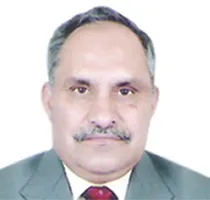If you are like almost anybody I know, the mention of Nepal will probably bring to mind the neighbourhood watchman or domestic help 'Bahadur' or the immaculately turned out soldier of the Gurkha Rifles as he smartly marches past the President on Republic Day. We tend to see the Nepalese as one of us, though on the periphery and albeit as a much poorer cousin. Our economic perceptions may be correct, despite the fact that one sees neither abject poverty on the streets of Nepal, nor is one confronted by hordes of malnourished beggars at every street light, as we are used to seeing in Indian cities.
If you were to read Western tourist blogs or brochures on Nepal, they tend to talk of narrow, poorly maintained dusty roads, chaotic traffic and a polluted Kathmandu. But a trip there is in fact a very different experience for those of us from India. It isn't a foreign country in terms of the flora and the fauna, or even for that matter the religion, language or food habits. One would feel just as at home in Nepal as one would while visiting Darjeeling and the Dooars or the Kumaon. But make no mistake: Nepal is very much a foreign land from which we can learn much.
True, Kathmandu roads can't support the number of cars, and attempts at road widening, with diversion of traffic, make travel tiresome; but one will be struck by the adherence to traffic rules, lane discipline, minimal use of horns and the patience of the average driver. If to this we were to add the cleanliness and lack of trash, the gentleness and politeness of the people, the antics of the 'ugly Indian' (as used to be said of the Americans once) is difficult to ignore.
In fact, the only vehicles that tend to drive badly in Nepal are those with Indian registration numbers. Kathmandu and Pokhara are afflicted by the same issues that afflict our urban sprawls. Maybe our politicians and administrators need to visit Nepal to learn how waste management has been organised, instead of proceeding on 'learning' trips to the West, as most are wont to.
It is worth recalling that just about two decades back Nepal was inflicted with a horrendous civil war that caused immense damage to infrastructure, governance and the people. The fact that Nepal today, and for the last decade more or less, has been at peace with little or no political violence speaks volumes. It makes one wonder as to what we, in India, are doing wrong that insurgencies here tend to drag on endlessly for decades.
In my view since, we look at money as the solution to quelling all dissent and pour in vast amounts of unaccounted funds into insurgency-afflicted States. As a result, insurgencies are no longer movements of the people to fight political inequality but a homegrown criminal industry that provides employment to some and power and pelf to those in control of the movement as also to local politicians, bureaucrats and policemen who take advantage of the environment or work in tandem with them.
Unfortunately, the Indian Army, despite being aware of the reality on the ground, in some of our States, acts unwittingly as the perfect tool for these criminal elements to thrive due to its perception of what needs to be done to further national interest. In its never-ending attempts at neutralising what passes for separatism in this country, the Army uses its troops to force people to toe local government policies and directions that are invariably aimed at ensuring the status quo.
India's military leadership should look to Nepal to understand how insurgencies can be peacefully terminated instead of just looking for more potent ways of neutralising separatists. What could be more conducive to such an endeavour than the fact that the present Army chief and the vice chief have both served extensively with the Gurkhas?
(Brig. Deepak Sinha (Retd) is a consultant at Observer Research Foundation, Delhi)Courtesy : The Pioneer
The views expressed above belong to the author(s). ORF research and analyses now available on Telegram! Click here to access our curated content — blogs, longforms and interviews.

